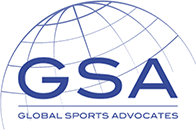 Established in 1998, the International Federation of American Football (IFAF) oversees the regulations, competitions, performance, and development of American football worldwide. Currently, IFAF includes 74 affiliated national federations representing nearly 5.04 million registered athletes globally.
Established in 1998, the International Federation of American Football (IFAF) oversees the regulations, competitions, performance, and development of American football worldwide. Currently, IFAF includes 74 affiliated national federations representing nearly 5.04 million registered athletes globally.
In October 2023, the IFAF was granted full recognition by the International Olympic Committee. Flag football will make its debut at the Los Angeles 2028 Olympics.
With the introduction of flag football as an Olympic sport, our international anti-doping rule violation lawyers from Global Sports Advocates remind athletes how anti-doping rules can affect their ability to compete and why prompt legal assistance can be the key to protecting an Olympic dream.
Table of Contents
Who is Required to Submit to Testing?
IFAF is a signatory to the World Anti-Doping Code. IFAF anti-doping rules apply to all participants in competitions over which IFAF has jurisdiction.
To be eligible for competition, athletes are required to sign a consent form agreeing to be bound by IFAF anti-doping rules, to submit to testing when asked to do so, and to respect consequences arising from the doping control process. Any samples collected become part of the individual’s Athlete Biological Passport.
What Substances and Methods Are Banned Under IFAF Anti-Doping Rules?
The IFAF adheres to the list of prohibited substances established by the World Anti-Doping Agency known as “WADA”. This includes:
- Anabolic agents, such as anabolic androgenic steroids (AAS) and selective androgen receptor modulators (SARMS)
- Peptide hormones, growth factors, related substances, and their mimetics
- Beta-2 agonists
- Hormone and metabolic modulators
- Diuretics and masking agents used to boost urine output or manipulate urine test outcomes
- Stimulants, including amphetamines and cocaine
- Narcotic analgesics for pain relief
- Cannabinoids, such as marijuana and hashish
- Glucocorticoids
- Beta-blockers
According to our anti-doping rule violation attorneys, in addition to banning specific substances, WADA prohibits specific methods. These include:
- Blood and blood component manipulation used to alter your blood's oxygen-carrying capacity
- Chemical and physical manipulation, such as tampering with samples or employing intravenous infusions to dilute urine drug metabolite concentrations
- Gene doping, which encompasses the use of nucleic acids or their analogs, gene editing, and cell manipulation to enhance performance
The prohibited list is revised every year by WADA. Athletes are responsible for knowing what substances and methods are included in the list.
What if You Need to Use a Banned Substance or Method?
If you have a medical condition that requires you to use a prohibited substance or method, you’ll need to obtain a Therapeutic Use Exemption (TUE).
An athlete who needs to use a banned substance or method should obtain a TUE prior to using or possessing the substance or method and should apply for a TUE 30 days before competing. A national-level TUE is valid for international- competition as long as IFAF is informed of the TUE in a timely manner.
What Happens After a Positive Test Result?
An Adverse Analytical Finding (AAF) is a report from a WADA-accredited lab that indicates a sample from an athlete, collected either during competition or outside of it, contains a banned substance or method. An AAF is considered a potential anti-doping rule violation after a preliminary review and a formal inquiry.
If you are formally accused of a violation by the IFAF Anti-Doping Committee, a hearing is conducted. You are allowed to have an attorney represent you at this hearing. After the hearing, a written decision is issued to determine if a violation occurred and what the appropriate sanction should be. Sanctions typically include periods of ineligibility and disqualification.
Decisions can be appealed to the Court of Arbitration for Sport (CAS).

